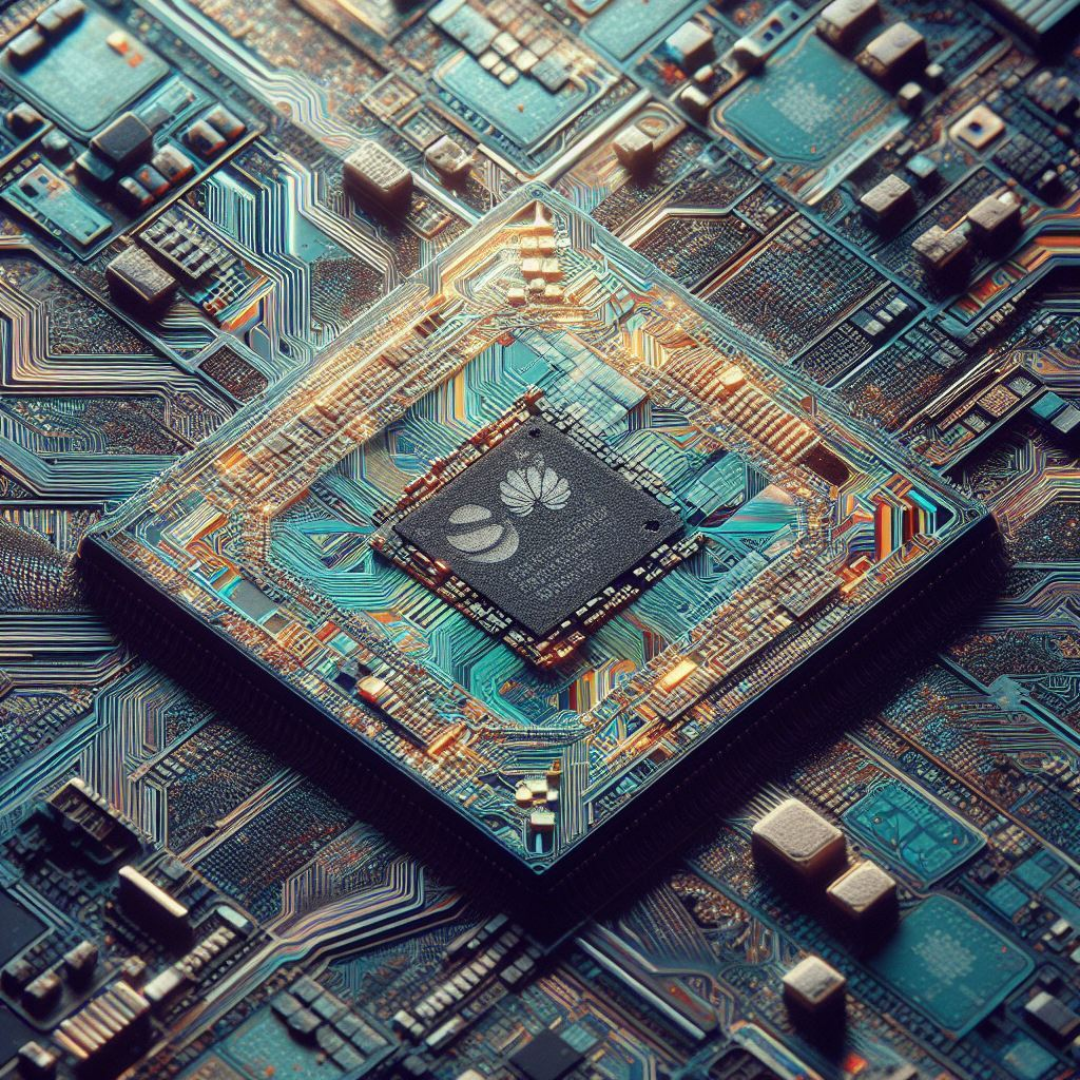Despite broad restrictions, Huawei surprised the industry in August by introducing a new smartphone equipped with 5G capabilities and an advanced processor.

Semiconductor Manufacturing International Corp. (SMIC) used equipment from European tech firm ASML Holding NV in producing an advanced processor for a Huawei smartphone, raising concerns about the effectiveness of recent export restrictions on ASML. Sources revealed that ASML’s deep ultraviolet machines were crucial in collaborating with other companies in manufacturing the Huawei chip.
Notably, there is no indication that ASML’s sales violated any export restrictions. Following this revelation, ASML’s shares experienced a decline of up to 2.1% in Amsterdam. As of 3:54 p.m. local time, they were trading 0.6% lower at €558.5 apiece.
The United States, in collaboration with Japan and the Netherlands, has been working to prevent China from accessing advanced semiconductor technology, particularly exemplified by the 7-nanometer chip powering Huawei’s Mate 60 Pro. This effort is aimed at curbing China’s technological progress and averting any potential military advantage.
Despite broad restrictions, Huawei surprised the industry in August by introducing a new smartphone equipped with 5G capabilities and an advanced processor. A subsequent teardown revealed that the chip was produced by SMIC, indicating capabilities that surpassed what the U.S. had sought to impede.
ASML plays a pivotal role in the global chip supply chain, with a monopoly on advanced extreme ultraviolet lithography systems (EUVs) essential for cutting-edge chip production. They also supply the deep ultraviolet lithography machines needed for more mature semiconductors.
While ASML has been unable to sell its EUV machines to China due to export restrictions, less advanced DUV models can be adapted with additional equipment to produce 7-nanometer chips and potentially more advanced ones. However, this process is notably more costly than using EUV technology, making it challenging to scale production competitively.
In China, the government is willing to subsidize a significant portion of chipmaking expenses, and Chinese companies have been accumulating DUV equipment for years, especially after initial U.S. export controls were implemented last year.
Pressure from the Biden administration led the Dutch government to announce plans to restrict ASML from shipping three out of four of its most advanced immersion DUV lithography machines to China without a license. While ASML is currently able to make these shipments, they will be prohibited starting in January.
The Biden administration recently introduced further controls, limiting the export of DUV machines. These regulations utilize a de minimis rule to regulate the sale of specified foreign-made lithography machines containing any amount of American materials.
These new controls are expected to impact up to 15% of ASML’s sales in China, according to CEO Peter Wennink. The U.S. measures go beyond those of the Netherlands, risking perceptions of extraterritorial influence.
Dutch officials have expressed concerns about the unilateral nature of the U.S. measures, emphasizing the need for a collaborative approach within the European Union in discussions with the U.S. regarding export controls for sensitive technology.